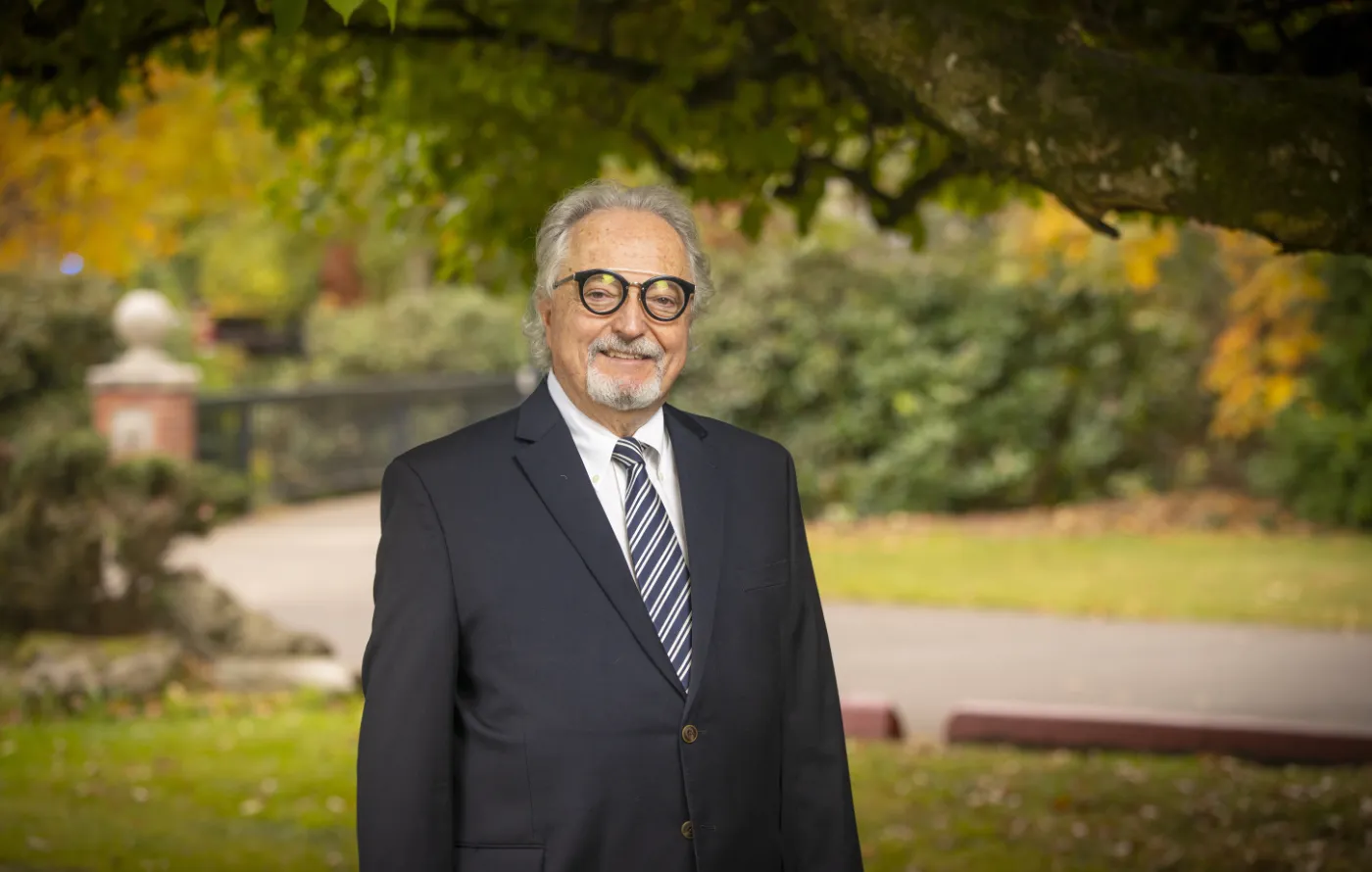Bruce Howell, distinguished professor from practice at Willamette Law, shares with his students the ‘Howell Health Law Axiom’: if it makes sense in business, in health law, it’s illegal. After 50 years practicing law — 40 of them navigating the complicated world of health regulations — Howell’s tongue-in-cheek summary reveals a serious truth that health care operates in a regulatory universe so complex that common business logic does not always apply.
What began as a part-time teaching role has become a nearly full-time job in the last several years. He recently closed his practice and is now focused solely on teaching. He has four regular courses, including Health Law I and II, Medical Malpractice and the Law of Biomedicine.
This academic year, Howell expanded his offerings with a weeklong intersession course, Fraud and Abuse in Health Law. He says Health Law is unique and unlike any form of business law.
There are a multitude of Health Law regulations, he says. When he took the Health Law specialization exam in Texas, there were 21 sub-categories. Probably five of them are very important, he says, but that doesn’t mean the others don’t come up.
Lawyers working in Health Law might represent a general surgeon in a case, and then an orthopedic surgeon, and they need to learn about their clients’ work. While both are surgeons, their practices likely vary by quite a bit.
“It keeps you on your toes,” Howell says. “When you get into Health Law, you are drawn into two or three areas. I do a lot of fraud and abuse work. There are lawyers who specialize in representing physicians or other professionals in front of licensing boards or hospital boards. The thing we do in two semesters of Health Law is focused heavily on a general overview.”
During the intersession course, Howell concentrated on the fraud and abuse laws that set Health Law apart from many other disciplines, such as the Anti-Kickback Statute, STARK Law and False Claims Statute. Three guest lecturers joined the class, including Kathy Lauer, a retired Health Law attorney, Gary Bruce, the former general counsel of St. Charles Health in Bend, Oregon, and Rob Rhoad, an attorney from Washington, D.C.
Gabrielle Lusby JD’26 is a third-year student in the Health Law Certificate Program. She plans to go into Health Law after graduation and enjoyed learning from the guest speakers and Professor Howell, who shared how their work is affected by the legal issues the students were learning about in every class.
“We did a deeper dive into some of the statutes we went over in Professor Howell’s Health Law class, to gain a different perspective on them,” she shares. “It amazed me how complex the STARK Law is. I don’t think there’s any way to grasp the complexities of that statute alone in a weeklong class, but it was really cool to gain a better understanding of what it is.”
Lukas Farnand JD’26 found the class timely and interesting, particularly following the high-profile murder case of UnitedHealthcare CEO Brian Thompson in December 2024.
He says the concepts they talked about aren’t straightforward, but hearing the real-world applications from Howell and the guest speakers was engaging. Although he isn’t planning to go into Health Law for a career, the class piqued his interest.
“Professor Howell did a really good job of placing importance on this topic,” Farnand says. “For someone outside the health realm, it’s easy to think ‘Is this that important?’ ‘Are these just nonsensical statutes?’ But he put it in a way that it did feel important — the laws are dealing with people’s lives. It made me put in more effort to understand the laws and how they apply.”
In addition to teaching his regular courses, Howell is the program director for the Health Law Certificate program, as well as a faculty member for the Healthcare Leadership Certificate, part of Willamette University’s Executive Development Program.
“When we were looking at whether to create a certificate program [for students in the law school], we looked at all the other law schools on the West Coast,” Howell says, “and we had more offerings in the Health Law discipline than any other law schools aside from the University of Washington.
“It’s a steep learning curve in Health Law. The certificate gives students a three-year head start into the field.”



